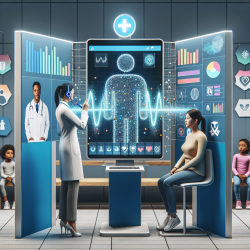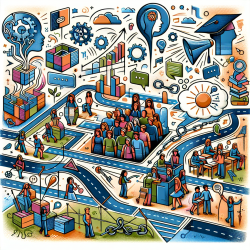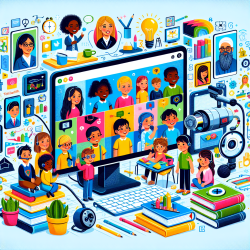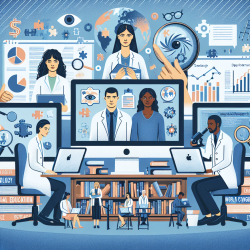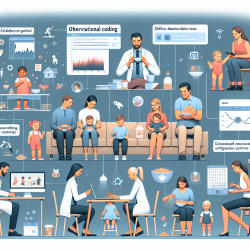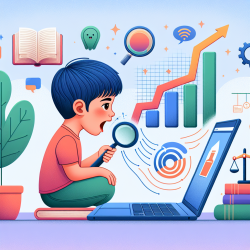The Hidden Health Crisis: How Conflict in Libya Fuels Non-Communicable Diseases
In the realm of global health, the impact of conflict on non-communicable diseases (NCDs) is a topic that often flies under the radar. Yet, as the research article "Conflict as a Macrodeterminant of Non-Communicable Diseases: The Experience of Libya" highlights, the implications are profound. This blog post delves into the findings of this research and explores how practitioners, particularly those in special education and online therapy services like TinyEYE, can enhance their skills and understanding by integrating these insights.
The Vicious Cycle of Conflict and Health
Libya's political instability since the fall of Muammar Gaddafi in 2011 has created a breeding ground for a range of health issues. The research underscores how conflict indirectly drives the burden of NCDs, such as diabetes, cardiovascular diseases, and cancers, by disrupting health services and policymaking processes. This disruption not only affects immediate health outcomes but also perpetuates a cycle of civic unrest and further violence.
Implications for Practitioners
For practitioners in the field of special education and online therapy, understanding the broader socio-political context of their clients' environments is crucial. Here are some actionable insights from the research:
- Holistic Approach: Recognize that health is not just a medical issue but is deeply intertwined with political and economic stability. This understanding can inform more comprehensive care strategies.
- Advocacy and Policy Engagement: Encourage practitioners to engage with policymakers to advocate for the implementation of WHO-recommended NCD policies, which have been shown to be cost-effective and beneficial at a population level.
- Community Building: Use therapy sessions as a platform to foster a sense of community and collective identity among clients, which can contribute to peace-building efforts.
Encouraging Further Research
The research also highlights the need for further studies to establish a causative link between conflict and NCDs. Practitioners are encouraged to contribute to this body of knowledge by documenting their observations and experiences in conflict-affected regions. Collaborative efforts between health professionals and researchers can pave the way for more effective interventions.
Building Bridges Through Health
Despite the challenges, there is hope. The research points out that health initiatives can serve as a bridge towards peace. By delivering services to all population groups irrespective of their background, health workers can strengthen the social fabric and contribute to a collective civic identity.
For practitioners, this means that every therapy session is not just an opportunity to improve individual health but also a chance to contribute to broader societal stability. By working with clients from diverse backgrounds, practitioners can play a part in fostering unity and cooperation.
To read the original research paper, please follow this link: Conflict as a macrodeterminant of non-communicable diseases: the experience of Libya.
